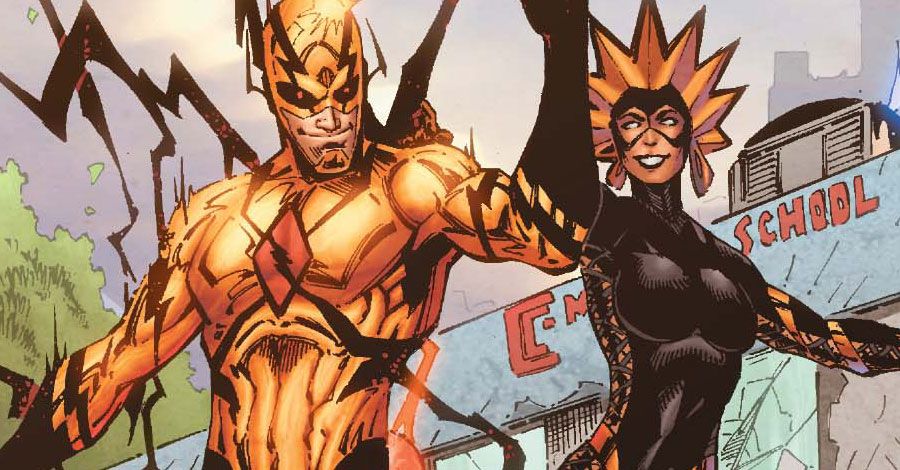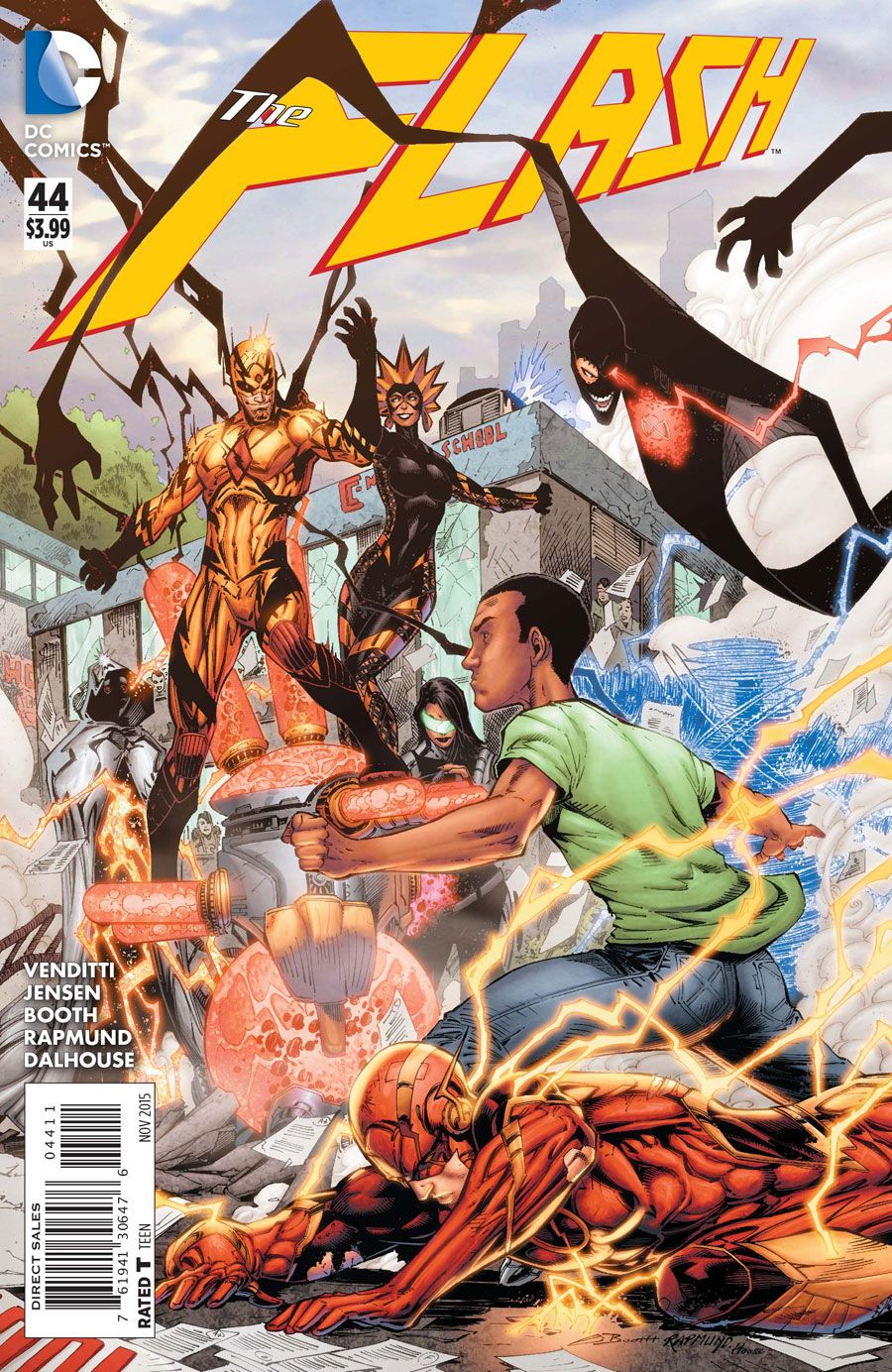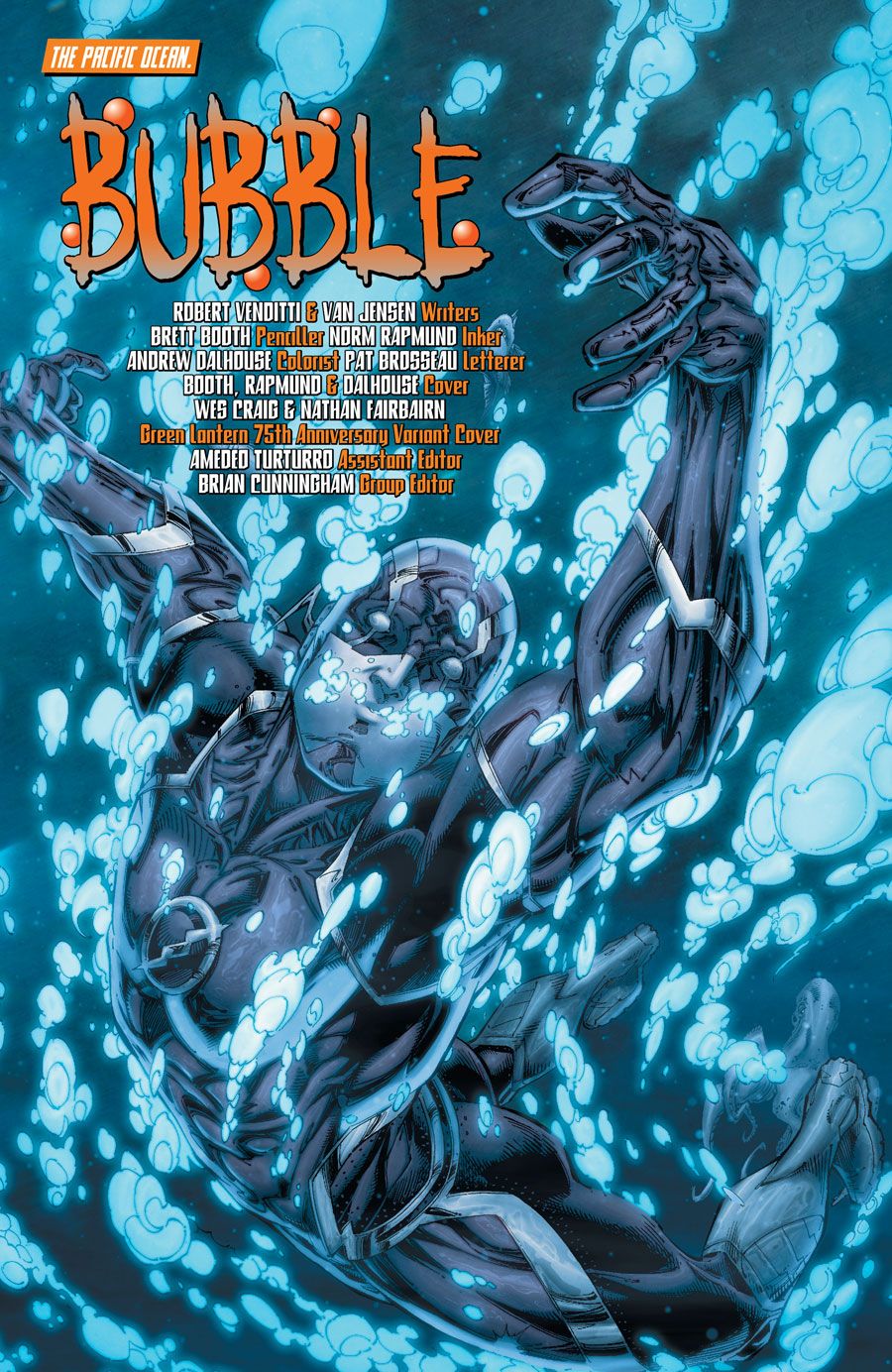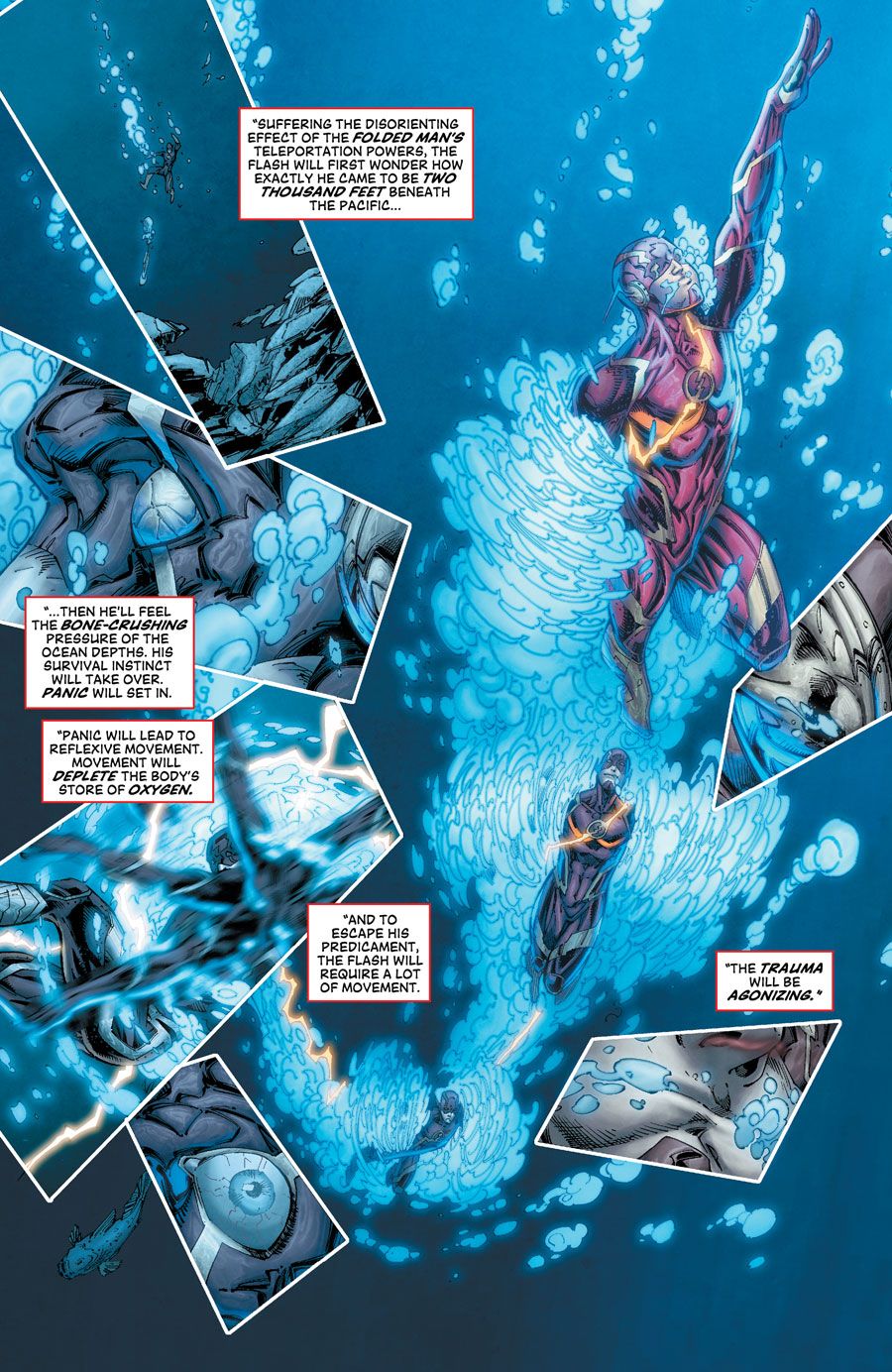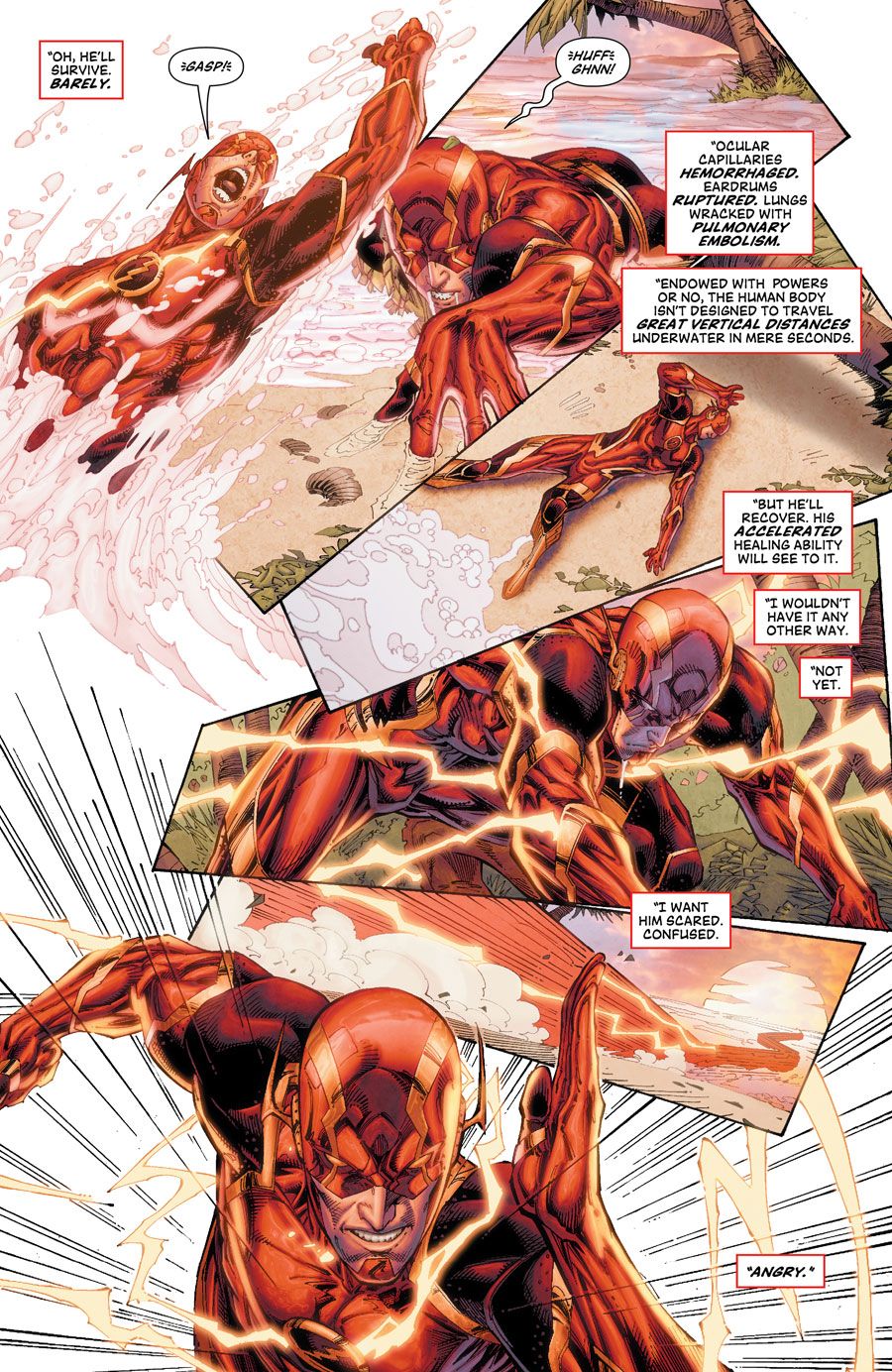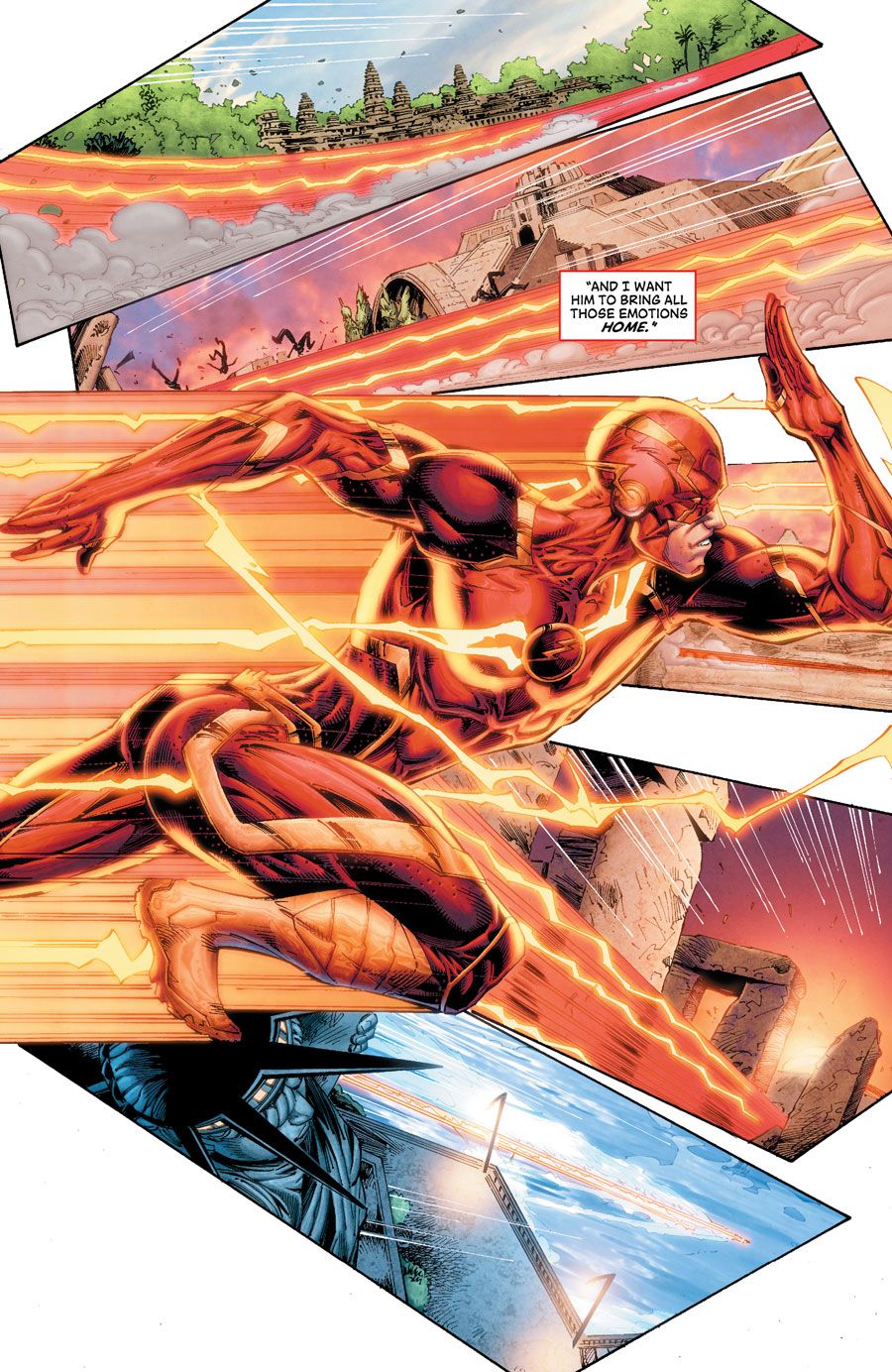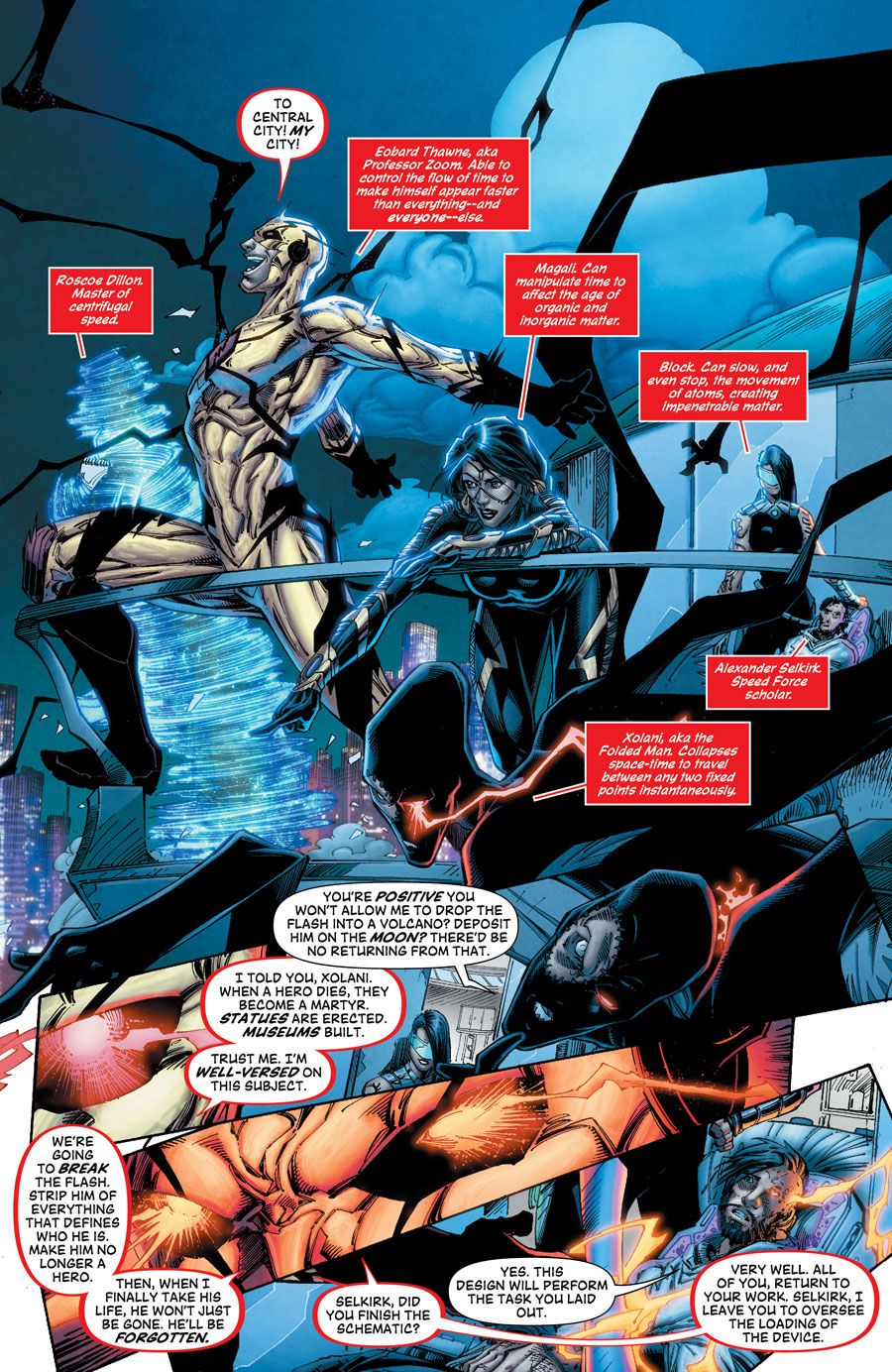With The Rogues, Gorilla Grodd and Reverse-Flash having made debuts in the New 52 before Robert Venditti and Van Jensen's run on "The Flash" started, the co-writers knew Eobard Thawne (A.K.A. Professor Zoom) was arguably the greatest of Barry Allen's classic supervillains that remained to be introduced into DC Comics' modern continuity.
Now, the writers and artists Brett Booth and Norm Rapmund are delivering a fast-paced superhero crime thriller with Barry's father (the convicted Dr. Henry Allen) on the lam, a Speed Force-infused band of baddies wreaking havoc in Central City and Iris and Wally West digging themselves dangerously deeper into the mysteries of the Scarlet Speedster. Meanwhile, Zoom, unsurprisingly, is the one pulling all of the strings.
RELATED: Deleted "The Flash" Scene Hints at Superman, Aquaman
CBR News spoke with always affable Venditti and Jensen about whether Tom Cavanagh's performance as Zoom on "The Flash" TV series has influenced the current story, how quickly Jensen, a former crime reporter, would have jumped on the Flash beat if he was still writing for "The Arkansas Democrat-Gazette," and just how far the writers would go if they were protecting one of their own loved ones if they were thrust into the positions of Barry and Henry, both of whom have been forced to make some extremely difficult choices in the current run on "The Flash."
CBR News: My first question is a tough one, but based on your current story arc, I believe that it's just. What would you do to protect your father, son or loved one?
Robert Venditti: If I believed they were innocent the same way Barry believes Henry is? Anything.
Van Jensen: My son just hit one, and one of the big revelations to me that first year was the depth of love that comes with being a parent. It's something you can't prepare for. And as great as it is, it's terrifying in a way, because I know I wouldn't let anything keep me from protecting my boy.
Villains are traditionally the heroes of their own story. Now, I'm not saying Henry Allen is a bad guy, but he's certainly playing the part right now. Can we consider Barry's dad anything but a villain right now, even if he is doing what he thinks is right?
Jensen: He's a threat to Flash and anyone else standing in his way, sure. But being dangerous and being evil are not one and the same.
Venditti: I think it depends on whether or not Henry is innocent. If he is, then he isn't a villain at all, since he has been wrongly imprisoned for a crime he had no part in and everything else has spiraled out from that. Also, don't forget that Henry is doing what he feels he must to protect his son. I don't know if I'd classify that as villainous, though Henry has found himself in league with true villains to accomplish his goals.
I have to think that if one of my sons was The Flash, I would be able to recognize him, even if he was in a mask and suit. Why can't Henry make the connection? [Laughs]
Venditti: Well, there's more than just the mask and costume. There's also Barry's ability to vibrate his vocal chords and distort his voice. It isn't like he's just sliding on a necktie and a pair of glasses. [Laughs]
Jensen: So, true story -- at a convention this month, someone stopped by my booth one day dressed as a character from one of my creator-owned books, and I was floored. It totally made my day, something I'll never forget. The next day, she showed up again, but this time cosplaying as Harley Quinn. And I didn't recognize her! The moral of the story, I guess: masks work.
Eobard Thawne is obviously a central figure in Central City these days as he attempts to expose The Flash as 'the greatest evil this world has known.' We saw Tom Cavanagh deliver the goods as Thawne on TV this past season. Can you talk about how the additional exposure of a hit TV series translates to the comic book industry, and how Cavanagh's portrayal is reflected in your run, it it is at all?
Venditti: What we're doing is separate from the TV series. We knew when we began our run -- which started before the show launched -- that Thawne was one of the great pieces of Flash history that hadn't been introduced into the New 52 yet, and we wanted to rectify that. The things playing out in the comic have been in motion for a long time. Any similarities between what we're doing and what has happened on the show is completely coincidental. Cavanagh has done an amazing job, though, and he's a great guy, too. Van and I had a chance to talk with him a bit at this year's Comic-Con International. He was a class act all the way.
Jensen: I'll admit -- mostly I just gushed about his old show, "Ed." But like Rob said, in thinking about Thawne, we've been doing our own thing, focusing on what has made the character such an icon over the decades. He's a bad, bad dude, one who is desperate to claim the admiration that Flash has, but completely unable to understand how to earn it.
Can you talk about how the acolytes are all connected by "the energy" and share what you can about reimaging them for your run?
Jensen: Some call it the Speed Force, but there are other names for the energy source that gives Flash his abilities. It's an ancient force, one tied in to time and space at the most intrinsic of levels. But it's unpredictable, building up charges and sparking out. When it does, if it connects to a living being, some of the force transfers into them. We've seen that manifest as the ability to move at super-speed, but it also can manifest in different ways: the ability to freeze one's atoms, or the ability to control aging, or the ability to flit through seams in reality. So the acolytes -- and Flash -- are connected to the same energy, but it has affected each in a different way.
Zoom tells his army that the energy didn't make them into monsters -- it made them into gods. Didn't we learn from Dr. Pretorius that they could be one and the same?
Venditti: It all depends on point of view, I suppose. One person's god is another's monster, and vice versa.
Jensen: And not all gods are gentle, loving gods.
We learned a lot about what Thawne is capable of in "The Flash Annual" #4, where we witnessed the formation of Zoom's Army, and saw what depths he's willing to go to set his plan in motion. Will Magali, The Folding Man, the Human Block and Roscoe be such willing acolytes when they figure out what he's done? Because none of them appears to be supervillains, let alone Flash-style rogues.
Jensen: Some of them have spent centuries marching to Thawne's orders. That's a heck of a lot of history and trust built up between them. But, of course, that trust is built upon Thawne's lies. Among the acolytes, I think we see a range of personalities, and so each would react to such a revelation in his or her own way, I'd wager.
Venditti: We're definitely playing with the concept of a villain and what defines a character as such. As for whether Thawne's crew will discover the truth about him and what their reaction will be, we'll just have to see.
The acolytes are all cool, but the Folding Man is awesome. Can you talk about Xolani specifically, and what he's done to Barry at the end of "The Flash" #43?
Jensen: Thanks! And, yeah, Xolani is so great. It was a case of a concept that fit perfectly into this new paradigm we created, and Bong Dazo and Brett Booth have both had all kinds of fun with his design. There's something so unnatural and creepy about the way that he teleports around. It makes him a great villain for Flash -- always able to jump a step ahead, including depositing Flash deep beneath the ocean at the end of "The Flash" #43.
Venditti: Where Flash ends up as a result of Xolani's intervention leads to one of my favorite sequences of the series. It's only a couple of pages, but the way Brett Booth drew it and Andrew Dalhouse handled the colors results in some really fun storytelling.
We've already talked about gods and monsters but Iris actually calls Wally's car a "monster." Is a twist of fate, not unlike what happened to Roscoe, coming for Wally too -- or am I reading too much into this one single word?
Venditti: You may be reading a bit too much into that one word specifically, but there are definitely plans for Wally West. Huge plans.
Jensen: You might even say monstrously huge plans. Wait -- don't read too much into that. [Laughs]
Finally Van, as a former crime reporter, would you have grabbed the Flash beat like Iris has if it was offered to you at "The Arkansas Democrat-Gazette," or would you have stayed away because he's a magnet for trouble?
Jensen: I would've jumped at the Flash beat. That's a career-maker! Though I probably would've been terrified, covering Flash defending the Clinton Presidential Center against Tar Pit.
"The Flash" #44 by Robert Venditti and Van Jensen, featuring art by Brett Booth, Norm Rampund and Andrew Dalhouse, is on sale this week.

